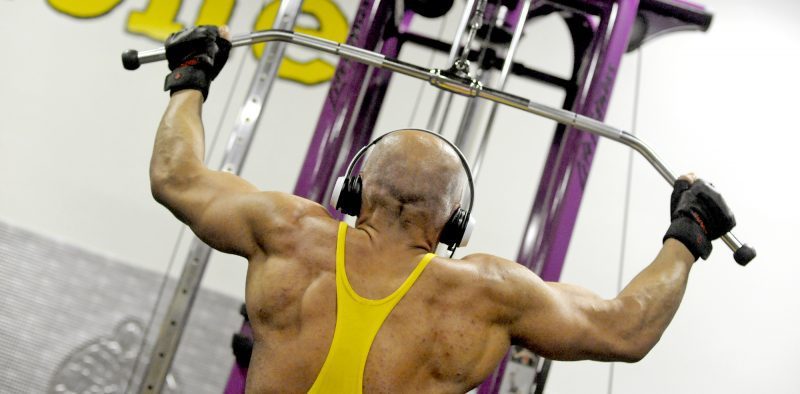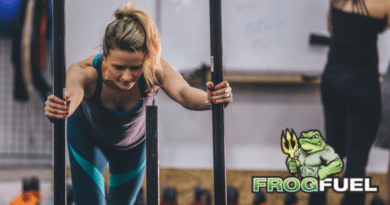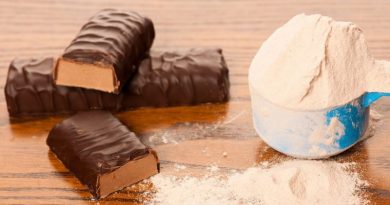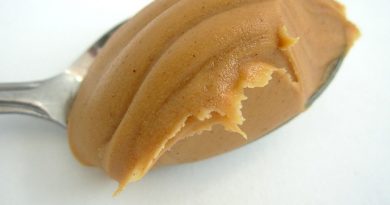Sports Nutrition for Seniors: Is Anyone Paying Attention?
Staying strong and active as you age is a top priority, but are you using the right fuel to make it happen? For years, the sports nutrition world has chased the 18-35 year-old demographic. This has left a massive group of loyal, experienced consumers wondering, “What about us?” People are searching for sports nutrition for seniors.
As a certified sports nutritionist with decades of experience, I’ve watched brands completely ignore their customers the moment they turn 36. It’s a huge mistake. This guide will break down the incredible opportunities in sports nutrition for seniors and show you the specific supplements that support a healthy, active lifestyle for years to come.
Disclaimer: This article is for informational purposes only and is not meant to treat or diagnose any condition. It is recommended that you speak with your doctor before starting any exercise program, changing your daily nutrition, or adding any supplements to your regimen.
Table of contents
Key Takeaways
- The supplement industry has historically ignored consumers over 35, missing a massive and growing market for healthy aging products.
- Seniors have different nutritional needs, primarily focused on combating age-related muscle loss (sarcopenia) and supporting joint health.
- Key supplements for seniors include higher doses of protein (1.2-1.6g per kg of body weight), creatine monohydrate for muscle and brain health, and targeted joint support like UC-II collagen.
- Existing products from major brands can be effectively marketed to seniors by simply changing the messaging to address their specific goals, like maintaining health rather than building massive muscle.

Getting Old Sucks… What about Sports Nutrition for Seniors?
I’m 41 now, and my body is a world away from what it was in my 20s. Building muscle is tougher, losing weight takes more effort, and the aches from years of competitive sports are a daily reminder of the miles on the clock. It’s a reality every single one of us faces.
From a business perspective, I always focus on the lifetime value of a customer. In my days working for a major supplement company, I argued that we could engage a customer at 18 and keep them for 60 years or more, but the idea of sports nutrition for seniors was always dismissed. They told me to stay in my lane.
They couldn’t see the massive opportunity right in front of them.
The “healthy aging” market isn’t a small niche; it’s a booming industry. Reports from Grand View Research project the global anti-aging market will hit over $421 billion by 2030. Brands that cater exclusively to seniors are waiting for people to age into their demographic, while sports nutrition brands let their loyal customers walk away.
Many companies already have the perfect products. They just market them exclusively to the younger crowd. Simple things like protein powders, joint formulas, and even creatine monohydrate are essential for older adults.
With a simple shift in marketing copy, brands could show these customers that their products still meet their needs. This simple change to focus on sports nutrition for seniors would dramatically increase customer loyalty and lifetime value. Of course, it is always wise to speak with your doctor before starting any new supplement regimen to ensure it doesn’t interact with any medications.
We Aren’t Getting Any Younger
As we age, our nutritional needs change significantly. The goal for a 60-year-old is vastly different from a 20-year-old. You’re likely not trying to become a 260-pound mass monster; you’re focused on aging gracefully, maintaining your health, and staying strong.
This is where targeted sports nutrition for seniors becomes critical.
One of the biggest challenges is fighting sarcopenia, the natural age-related loss of muscle mass. To combat this, experts now recommend that adults over 60 consume 1.2 to 1.6 grams of protein per kilogram of body weight, which is much higher than the standard RDA. High-quality whey protein is an excellent tool here.
Your joints also need different support. Instead of generic formulas, look for specific ingredients backed by research. UC-II collagen, for instance, has been shown in some clinical studies to be highly effective for improving joint comfort and flexibility. You can also add powerful anti-inflammatories like fish oil and curcumin.
You probably aren’t taking the high-stimulant pre-workouts you used in your 20s. But that doesn’t mean you can’t use supplements to help fill nutritional gaps and mitigate health issues. The key is to be strategic.
Why should brands let their customers go to “senior-focused” companies? The market for sports nutrition for seniors is growing every day as more people research how to stay healthy and fit. Brands can either sit back and miss out or strategically adapt their product lines to serve the customers they already have. The future is in healthy aging.
FAQs
How much protein do I really need after 60?
To effectively fight age-related muscle loss, most research points to a target of 1.2 to 1.6 grams of protein per kilogram of your body weight. This is significantly more than the general Recommended Dietary Allowance (RDA) and supports muscle maintenance and strength.
Is creatine safe for seniors?
Yes. Creatine monohydrate is one of the most studied supplements on the market and is considered very safe for older adults. Taking 3-5 grams daily can provide significant benefits for not only muscle strength and power but also cognitive function and is a key part of sports nutrition for seniors.
What’s the best supplement for aging joints?
While many have used glucosamine and chondroitin, recent research suggests that patented ingredients like UC-II (undenatured type II) collagen may offer superior benefits for joint comfort and mobility. Combining it with a natural anti-inflammatory like high-quality fish oil or curcumin can provide even more comprehensive support.
Do I need a testosterone booster as I get older?
Testosterone levels naturally decline with age, but jumping to a “booster” isn’t always the answer. Many of these products are not supported by strong science. It’s best to first speak with a medical professional and focus on foundational health by ensuring you have adequate levels of key nutrients like Vitamin D and Zinc, both of which play a role in hormone production.


*Disclosure: This article may contain affiliate links or ads, which means we earn a small commission at no extra cost to you if you make a purchase through these links. These commissions help support the operation and maintenance of our website, allowing us to continue producing free valuable content. Your support is genuinely appreciated, whether you choose to use our links or not. Thank you for being a part of our community and enjoying our content.
PLEASE CONSIDER SHARING THIS ON YOUR SOCIAL MEDIA TO HELP OTHERS LEARN MORE ABOUT THIS TOPIC.





